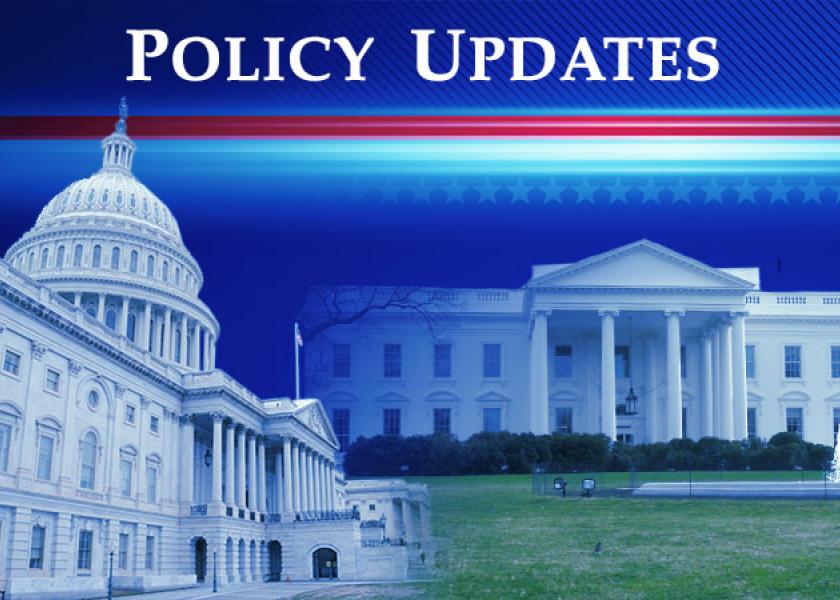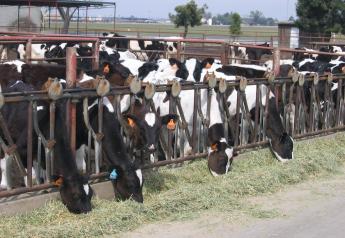Senate Clears $1.7 Trillion Omnibus; House to Pass

Ag sector mostly pleased with add-ons
The Senate Thursday afternoon cleared the nearly $1.7 trillion omnibus spending package via a vote of 68-29. The 4,155-page legislation includes the dozen annual spending bills for every federal agency, supplemental aid for the war in Ukraine and natural disaster victims, and a series of unrelated policies.
House Speaker Nancy Pelosi (D-Calif.) said midday Thursday she hoped the House could pass the measure on Thursday night, though that depended on how long it took the Senate to send the amended version across the Capitol.
Even after the House clears the bill, it will take time for the measure to be enrolled for Pelosi's signature, the last step before it's ready to go to the White House.
Bottom line: Just a matter of time before it becomes law.
Highlights of some key ag-sector funding from the omnibus:
- $3.7 billion in farm disaster aid, to cover eligible 2022 crop and livestock losses, with $494.5 million to be used for livestock losses due to drought or wildfires, as part of overall $40.6 billion for disasters.
- Requires USDA to make a one-time payment to each rice producer on a U.S. farm in the 2022 crop year. The measure would rescind $250 million from the fiscal 2021 omnibus and reappropriate it for the payments. USDA would determine payment rates based on yield history and acreage.
- Authorizes $100 million for the USDA to make pandemic assistance payments to cotton merchandisers that purchased cotton from a U.S. producer from March 1, 2020, through the measure’s enactment date.
- Includes the Growing Climate Solutions Act, which authorizes USDA to oversee the registration of farm technical advisers and carbon-credit verification services
- Includes the SUSTAINS Act, which allows corporations and other private entities to contribute funding for conservation projects and authorize USDA to match the donations.
- Reauthorizes the Pesticide Registration Improvement Act, which imposes fees for maintenance and registration of active ingredients. It boosts registration and maintenance fees 30% and allows EPA to raise fees by 5% in 2024 and 2026.
- Make permanent a summer EBT (food stamp) program to provide up to $40 a month per child. It allows grab-and-go or home delivery of meals to kids in rural areas as an alternative to meals in group settings Any summer meals benefits issued to a household in the summer of 2023 couldn’t exceed $120 per child. USDA would be required to establish a program beginning in the summer of 2024 and annually thereafter to issue EBT benefits to eligible households to ensure continued access to food when school isn’t in session in the summer. Link for details.
- $25 million for specialty crop equitable relief.
- Directs USDA to index all administrative and operating expense in the crop insurance program for inflation.
- Aid for Food for Peace ($1.8 billion) and McGovern-Dole International Food for Education ($248 million) programs.






